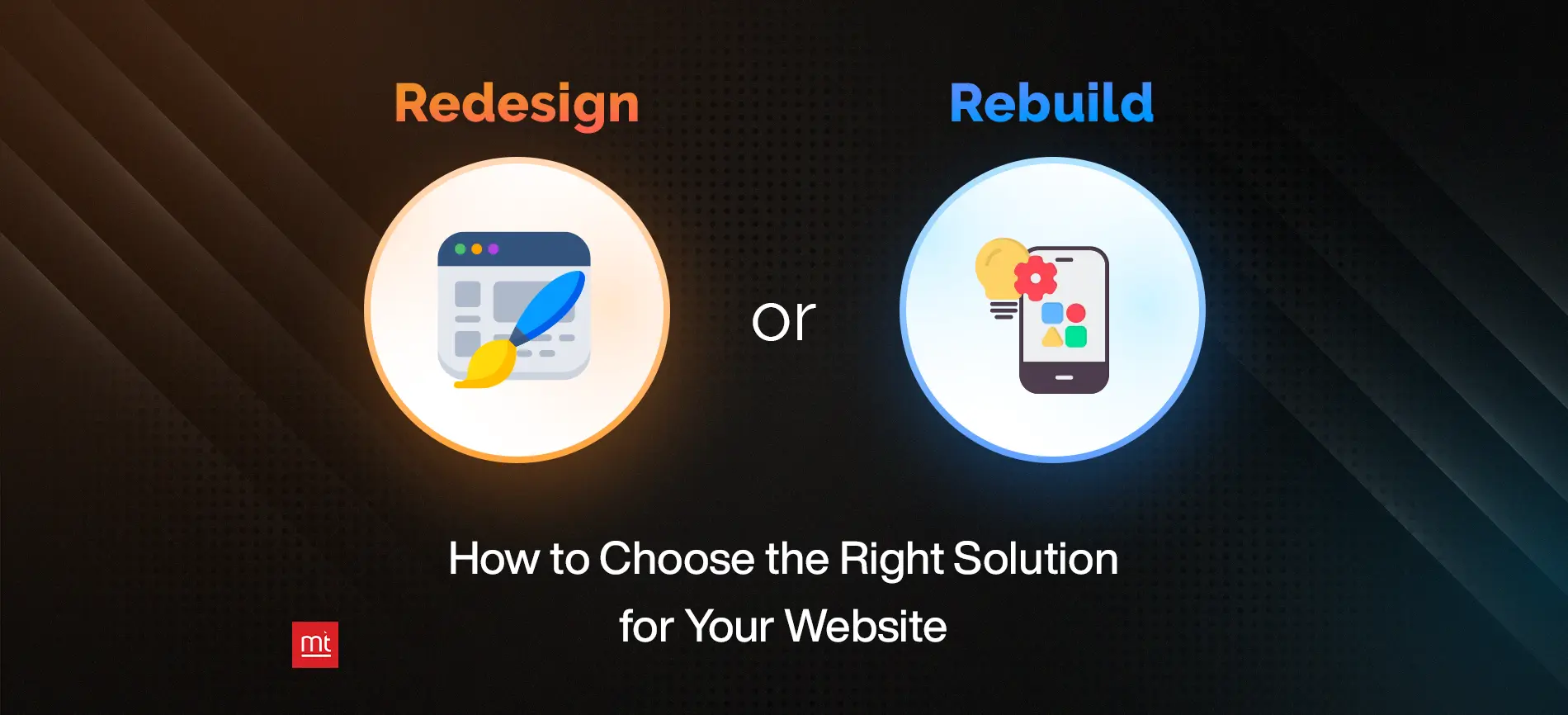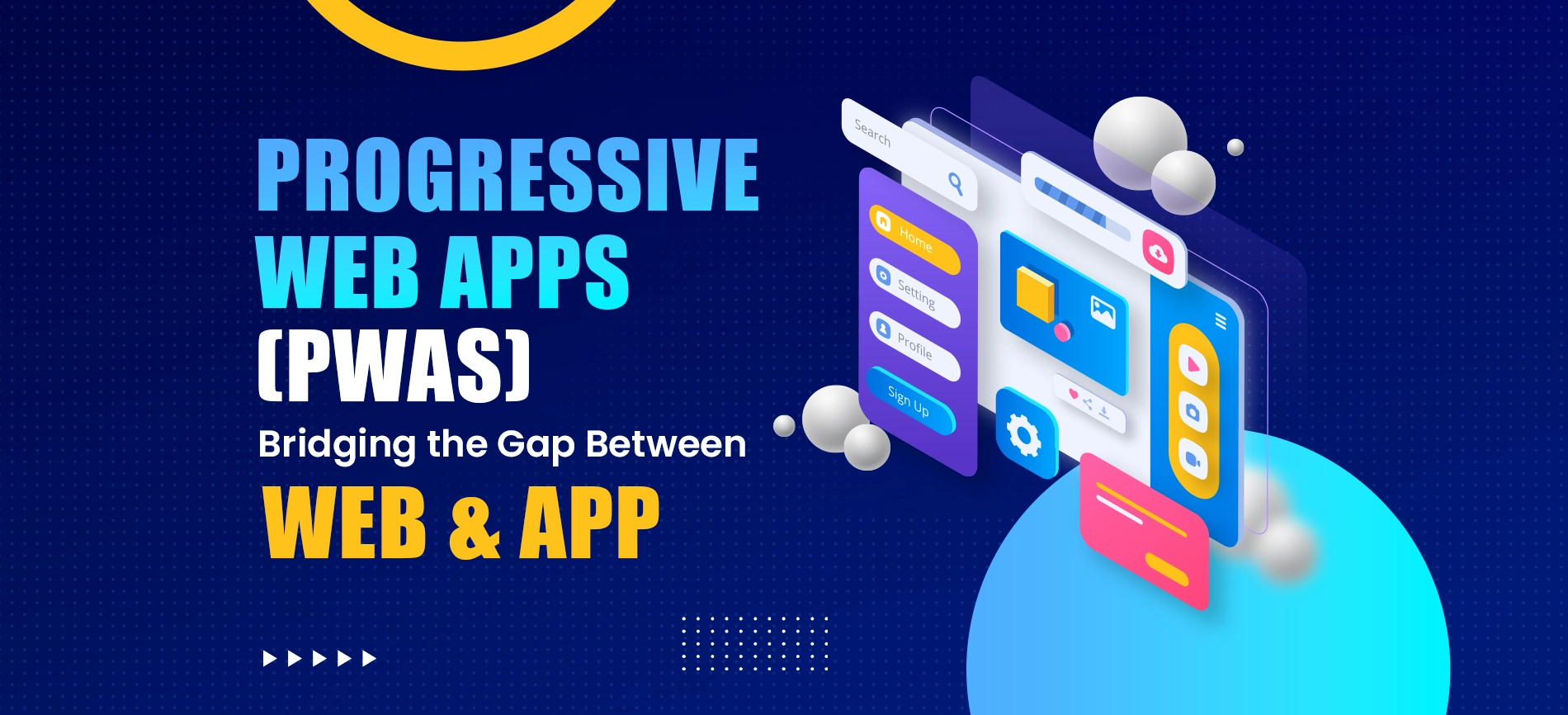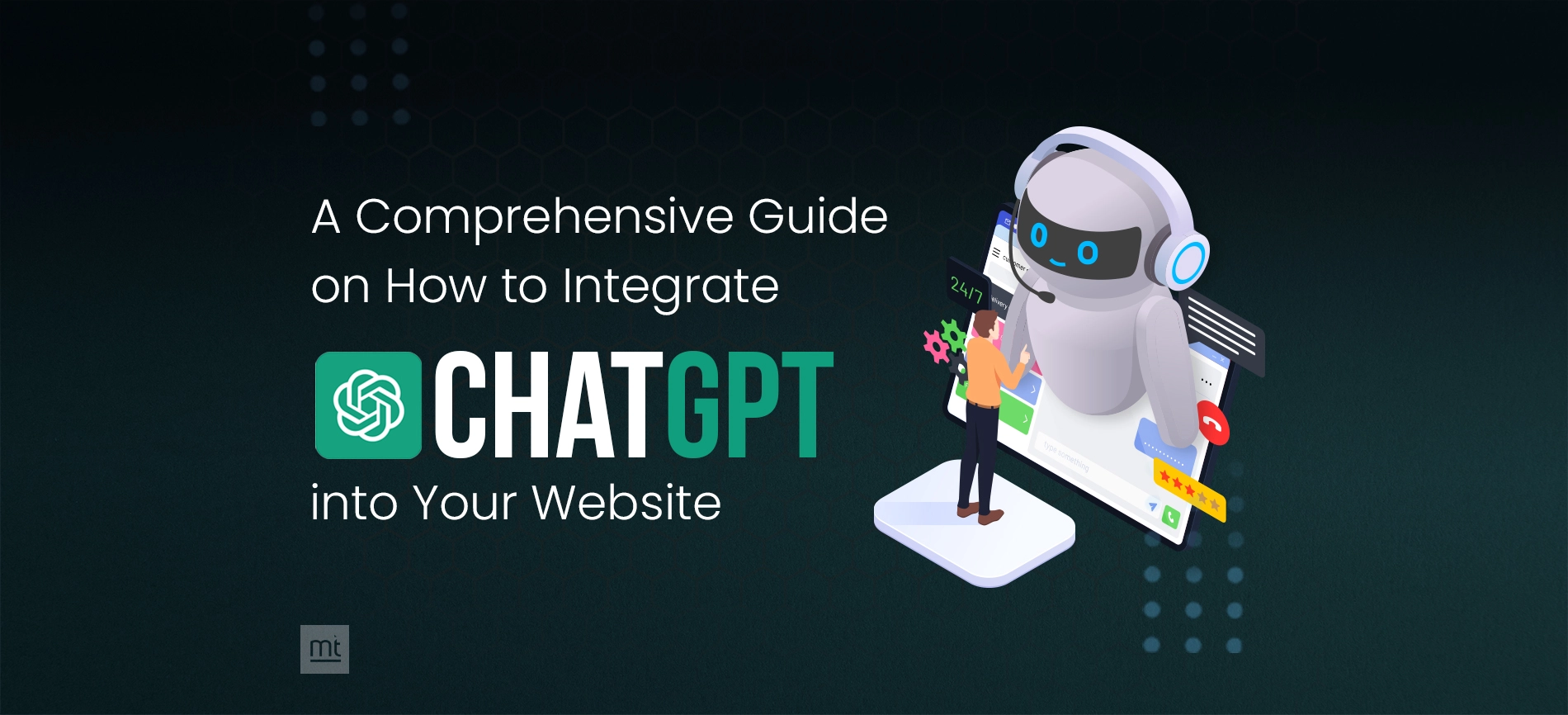Introduction - Website vs Web App
Picture this scenario- you have an extremely brilliant product that solves your customer’s issues. However, your customers are unaware of it. Why? You don’t have a thriving online presence. Only a few local people are aware of your presence and can vouch for the product.
The question is- what will help your business build an excellent online presence? It depends on your goals, purpose and timeline. This guide will take you through a detailed discussion on website vs web app to understand the differences better. We will conclude with insights on which approach works best and when.
What is a Web Application?
A web application is a software solution that your user can access via the web browser. Your user must have an active Internet connection to connect with the application.
The best part- you don't have to download the app to access it. It saves a lot of space on your device. Moreover, it is device-agnostic. So, your users don't need a specific device to access it; they can access it on their tablets, laptops and phones.
You can choose the app type and features depending on the features and target market requirements.
Why Do You Need a Web App?
A web application is a great choice. However, do you really need one for your business? Here are a few pointers that will help know if a web app is the way forward for you.
- You cannot deny the fact that web apps are extremely accessible. You can use them at any time across devices. All you need is a good Internet connection and a compatible browser to get started.
- Developing web apps is inexpensive. You create a single codebase and build upon it. It requires less resources and maintenance.
- Your users will love real-time communication. With web apps, you can ensure quicker communication and immediate connections.
- If your current app doesn’t fit your scalability needs, you must scale it. Web apps can be scaled easily and built to meet your newer needs.
- As you enjoy a centralized hosting and database service, it is easier to maintain and update the apps.
- You can reach beyond the horizons covered by your business and garner attention from International waters with the right software development solution.
Characteristics of Web Apps
Let’s understand what makes a web app distinct and exclusive software. It can help understand if it is the right choice for you.
- You can access modern web applications anywhere. Progressive Web Apps are available to your customers in the absence of the Internet. As a result, users can easily upload the data and store their queries.
- As the web apps are platform-agnostic, you can use any operating system (Windows, Linux, MacOS). You can create the applications for all web browsers irrespective of your choice.
- As web apps load faster than websites, you can gain high speed and performance. With zero wait time, your users will be happy
- Using web apps, you can build a strong underlying security. There are different features such as SSL encryption and password encryption to enhance your app’s security
- Web apps are user-friendly and accessible. You can engage users better with this solution.
- As there are in-built tools that help optimize the solutions, you can improve the app’s visibility.
Advantages of Web Apps
Ever asked the question- why web apps are great for your business? Here’s our take on that.

- By investing in web apps, you spend on the security of the business application. The different features and encrypted solutions can ensure risk-free transactions.
- With web apps, you can introduce extensive functionality to engage users. You can also personalize the solution via customized offerings
- As they are device-agnostic, you can engage users with seamless experiences across devices and web browsers
- The single codebase makes it easier for your developers to update and upgrade the application
- When you grow, your customers grow with you. Your business app can support this growth and help you scale easily.
- When you develop web apps, you are open to integrations. It can enhance the app’s functionality.
Disadvantages of Web Apps
This approach may not be suitable for your business at all times. Let’s understand the flip side to deciding when web apps are not for you.

- Web app development can be a time-consuming process. You may need to spend weeks-to-months to get the app out into the market.
- In case of complexities, you need an experienced team. With their skills and expertise, you can build a viable solution.
- Apart from the resource cost, you must pay for the software licenses, hosting and overall maintenance. If you are planning an advanced app, the expenses would be high
- The Internet is a must-have to access web applications.
Types of Web Apps
Do you want to build web applications for your business? Here are all the app types that you can invest in.
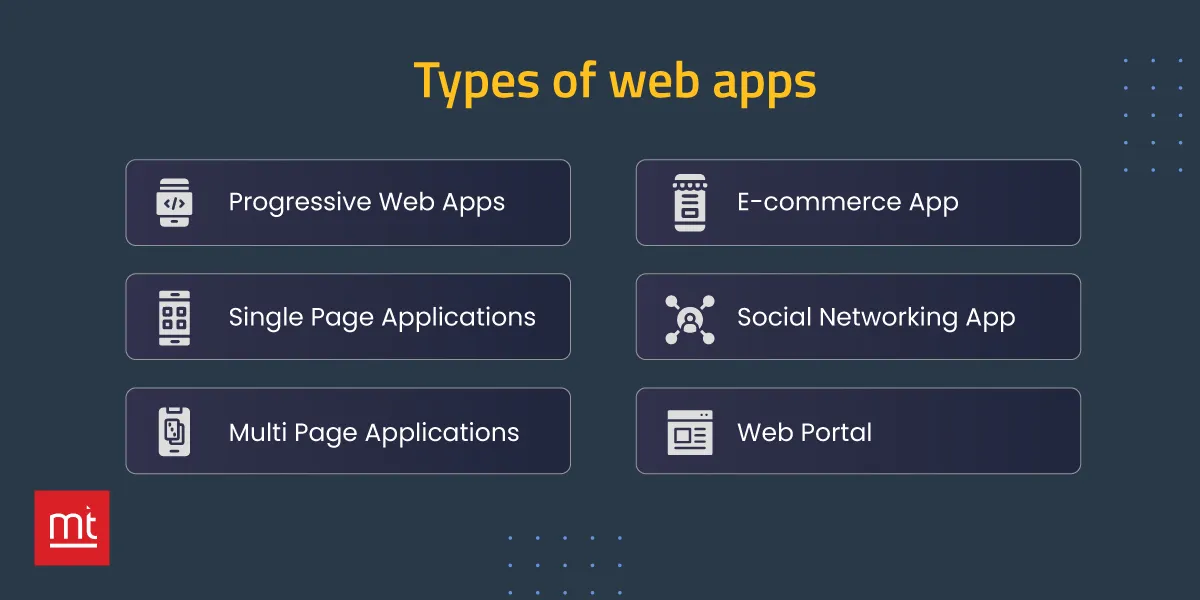
1. Progressive Web Apps
When you combine OS-specific web experience and web development technologies, you get Progressive Web Apps. Your users will enjoy consistent and impeccable performance.
2. Single Page Applications
As the name suggests, single page applications load a single document/page. Whenever users interact with the application, it will load dynamic data in response to the query generated.
3. Multi-page Applications
Your user will receive a different page each time they click on the link. There are multiple pages
supporting each query or action.
4. eCommerce App
Online shopping apps should be accessible, user-friendly and quick. You get to incorporate all these features in the web application. Moreover, you will notice that creating user accounts and adding items are easier with the web application.
5. Social Networking App
Social networking web apps are great and can help enhance the communication between users. When you use a web application approach, you can enhance the quality of communication and real-time services.
6. Web Portal
They are akin to websites that portray information gateways or service offerings. You can build a unified entry point using different content and tools.
What is a Website?
A website is a group of web pages that connect over the Internet to offer relevant content and information. It is hosted using web servers. Users can access it via web browsers which enhance the delivery efficiency.
You can use websites to enhance communication and offer excellent resources to the users. Moreover, it is used to build gateways between businesses and users.
The key components of the website include web pages, domain name, web server and HTML pages.
Why Do You Need a Website?
Here are all the reasons you must invest in a website for your business. It can help enhance your brand’s abilities.
- It can help you build a robust online presence that guarantees maximum reach. As a result, more people know and recognize your brand.
- You are not restricted by the global boundaries anymore. It is easier for you to connect with users beyond your location. This increases your market size and conversion chances
- When your sales team’s shift ends, your website will begin selling for you. They will be your promoter, support system and mediator between the business and customers.
- It is an excellent way to build your brand and showcase it to users. You get the chance to build a unique identity and carve a niche market
- You can sell your services, brand and even your products with the website. It is the place where maximum sales occur.
Characteristics of Websites
Check out the key characteristics of the websites to understand their structure and functionality better.
- When you build a website, you are creating numerous web pages. You interlink them and offer navigation solutions using hyperlinks to create the entire site.
- There is a unique domain name associated with each website. You must use the domain name to call the website over the Internet.
- The server is a crucial component of the web server. It is used to store the data and retrieve the content from the web browsers.
- The websites are built using HTML which is useful in maintaining the content structure. You can use HTML and CSS to define the layout and overall structure of the website
- This is an important feature of the website that is stored in various formats. You can add text, videos and audio content to enhance the website’s ability
- Websites are built so that you can access them across numerous devices. Using responsive designs, you can ensure consistent and uniform site design.
- Adding SSL certificates and other techniques, you can secure the data and enhance data protection. It will help mitigate the risks concerning cyber threats.
Advantages of Websites
Here are all the advantages of using a website for your business.
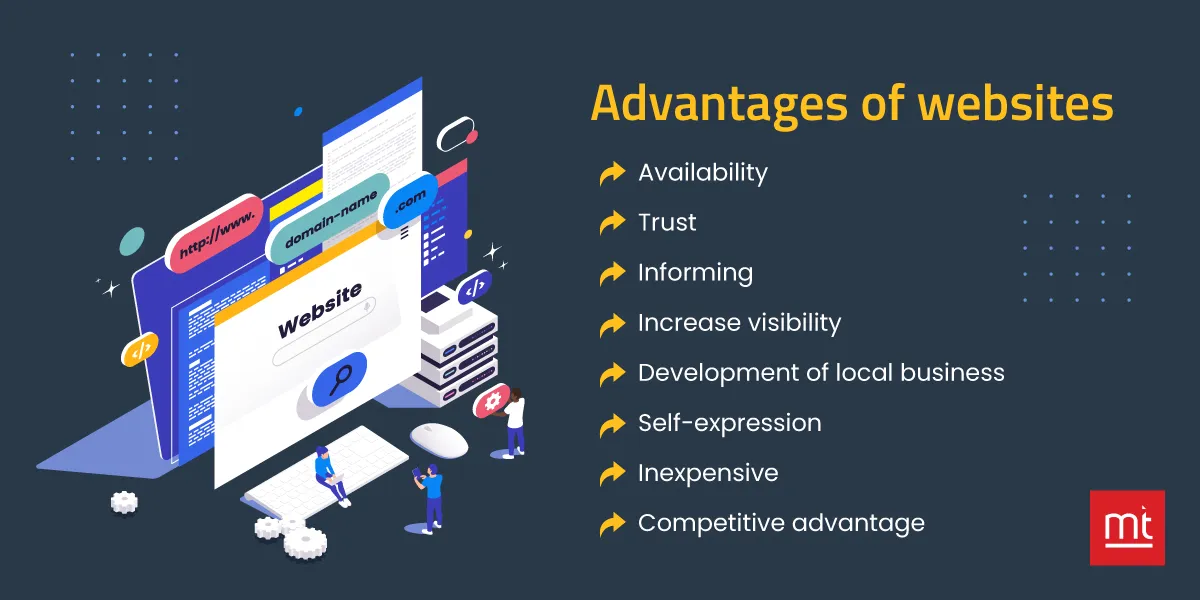
- One of the significant advantages of investing in a website is that you can access it 24/7. They can connect with your business, seek information and gain service-related support at any time.
- When you build a website, you invite trust and credibility. You can add authoritative and expert content to ensure you know your job.
- Sharing information is key to increasing conversions. Your website is the gateway to getting more information related to the product and service. Your user can make informed choices as a result.
- When you build eCommerce websites, you allow businesses to complete sales online. It is a convenient way to close maximum deals and enhance your profits.
- Websites can help increase the business visibility on search engines. It can help you reach more people and get more people to notice you from the target market.
- When you are a local business, having a website is a definite win. It can help people reach you faster, know your exact location and connect with you easily.
- There is a lot of potential for self-expression with websites. You can showcase your expertise via blogs and portfolios.
- It is a cost-effective way to reach people in your target market. You don’t spend much to get noticed as you would with other offline or traditional marketing forms.
- When you have a visible online presence, you get the desired competitive advantage.
Disadvantages of Websites
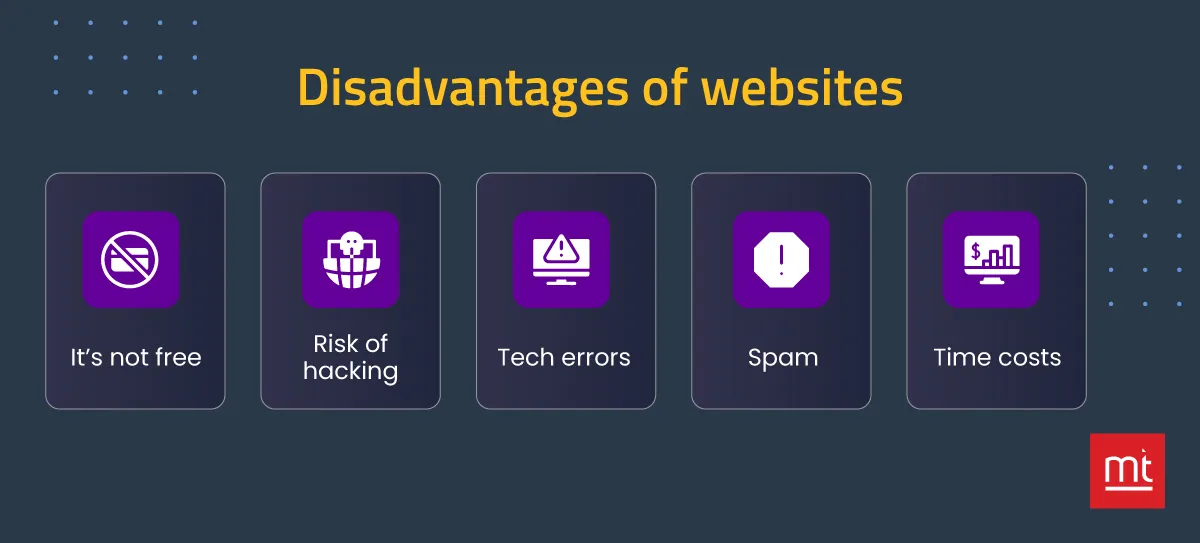
- While it is cost-effective, it is not free. You may have to spend a lot of money in case you are developing an expensive website. Depending on your hosting, development and deployment choices, you tend to attract costs.
- While websites continuously work towards offering security, you will notice that there is a risk of being hacked. It is prone to data breaches and cyber-attacks.
- When you build websites, they are prone to technical errors. You may experience broken links and server issues that may impact the user experience.
- Websites attract a lot of spam content via forms and other methods. This can lead to unnecessary content causing excess friction.
- When you are building a website, you spend a lot of time and resources getting it right. This can increase the time to build the entire website.
Types of Websites
It is important to know the various types of websites that you can build. We will introduce each type in brief.
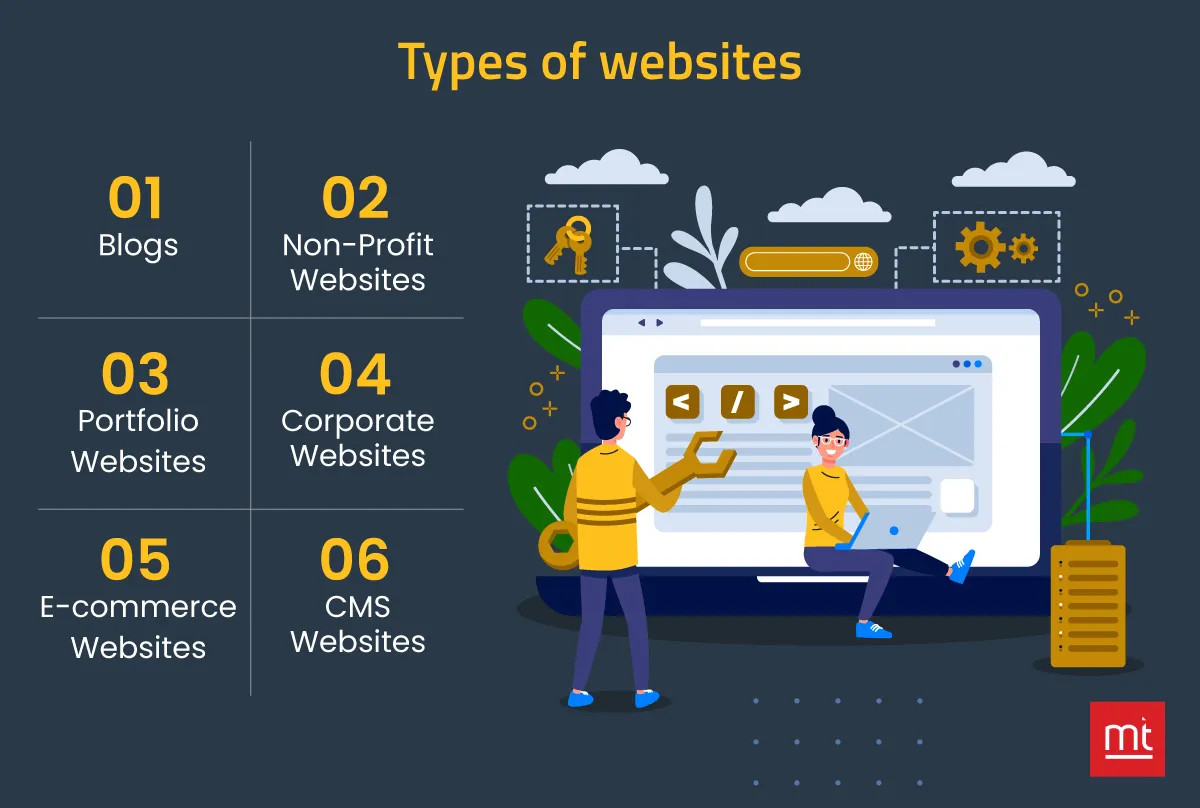
1. Blogs
You can share educational information or product-related content via blogs. It enhances your credibility and authority in the domain.
2. Non-profit Websites
These websites are generally used to increase awareness of your non-profit business. You can also use these websites to increase awareness, talk about your mission and showcase achievements.
3. Portfolio Websites
Whether you are a writer, developer or designer, showing your work is an important part of gaining good opportunities. Portfolio websites can help you organize your work and enhance its visibility.
4. Corporate Websites
Corporates need websites to connect with their users, showcase their services and channelize a more open communication.
5. eCommerce Websites
As a retail owner, it is time to thrive online. eCommerce websites are your gateway to maximize your reach and increase the sales for your business.
6. CMS Websites
If you are a content-heavy website, you might want to opt for CMS solutions. It can help you plan, generate, manage and publish content with greater ease.
What is the Difference Between Website and Web Application (Web Application vs Website)?
As a business, you must know the web app vs website difference to choose the right approach for your users.
Comparison Point | A Website | Web Applications |
The Purpose | Offer information, showcase abilities and share portfolios | Interactions, transactions and real-time communication. |
Development Method | It is faster to develop a website. There are fewer development processes or testing checks needed. | There is an entire process associated with building a web application. You must use a development-to-deployment process to ensure smooth workflows |
Authentication | You might need a certain level of authorization to access the content. However, you don’t need authentication on a website. | You must have authentications in place to authorize interactions. It will help ensure safe and secure transactions. |
Interactions | Websites are static in nature and offer visual content. As a result, interactions are not possible. | Users can interact with the web applications and get desired outcomes. |
Availability | Websites are always available and ready to support your user’s needs | Web applications may experience more downtime. |
Top Deciding Factors to Help Choose Between Websites and Web Apps
You must know when to choose web application vs websites. Your digital solution depends on the audience, the cost of development, the time frame you have and the business goals.
We will discuss the top three factors in detail to help identify what approach to choose.
Target Market
What does your target market want from your business? Are they looking for information or do they want to interact with your people?
If they want to understand your business and consume relevant information, you can choose a website. However, if they want to connect with your business and complete transactions, you must choose a web application.
It is equally important to understand the user’s requirements and their preferences before you choose the best approach to craft an online presence.
Time to Market
If you want a faster time-to-market, you must go with websites. You can release websites faster than web applications.
Web apps are more time-consuming and require phase-wise development. Your testing phase is equally gruelling in web apps.
Goals
Your goals will define the best software development approach to take. If you want to increase visibility or showcase your services, you should use websites.
If your goal is to ease transactions or interactions with the customer, you must choose to build a web app.
When Should You Opt for a Website
It is important to know when websites are a great option for your business.
- Websites are useful when you want to share educational information to your target users
- If your goal is to showcase your expertise or authority in the domain, you must go with a website.
- If you want to be more visible and enjoy a wider reach, you should use websites. They can help you establish a presence on the Google search engine and bolster your online presence.
- It is a great place to showcase your abilities via portfolios. Websites are a great option when you want to share your skills.
- Websites are the gateway for communication. Whether it is a simple form or a Chatbot, you can communicate with your user in real time.
When to Choose a Web App Over a Website?
Now, let’s look at all the instances when you must choose a web app over a website.
- When you want to increase interactions with the user, you need a more dynamic interface. Web apps help your business be more interactive and engaging.
- You must have seen how several applications are winning customers by knowing them better. For better personalization and great experiences, you must invest in a web app.
- When you are a business that offers real-time updates, you need a web application. A news channel is a great example of how a web app can extend better real-time user experience.
- If you are dealing with transactions or banking, you must have a robust and highly safe infrastructure. Web apps are better compared to websites
- Whether you are planning business workflows or managing the regular tasks, the workflow designs should be customized. It can happen only when you are using a web application.
- It is easy to match your new user requirements with web apps. You can easily scale the application to meet your load needs.
Consider Manektech as Your Trusted Web Partner
Whether you are considering developing a web application or a website, you must partner with a good web development company. They can align the solutions to meet your unique needs.
- ManekTech as your trusted web partner can offer the relevant expertise and subject matter understanding
- We have a team that has experience building capable and reliable web applications and websites.
- Our team works with agile methodology and a defined process to build the ideal solution for your business.
- With UI/UX strategists and developers gracing our team, we offer the most experiential and engaging solutions to meet your needs
- With us as your partner, you get custom designs and highly personalized development workflows.
Conclusion
Choosing the right approach is crucial for business visibility. You can go with websites if you want to showcase your expertise or educate the people. However, if you want to connect and communicate, you must choose web applications.
It is not enough to choose the right approach; you must also choose the tech stack and features. Working with an expert can guarantee the best outcomes. Hire web app developers from Manektech to build an experiential website or web application.
About Author
Subscribe to Our Newsletter!
Join us to stay updated with our latest blog updates, marketing tips, service tips, trends, news and announcements!




